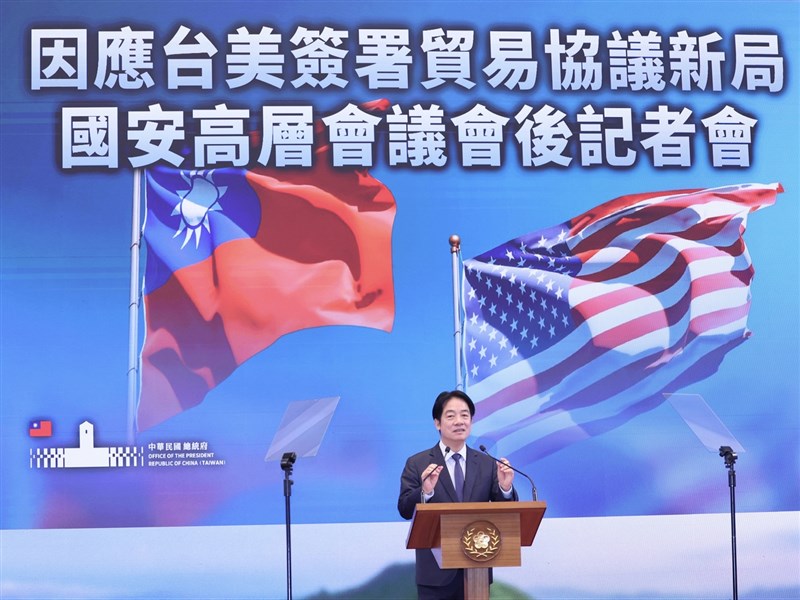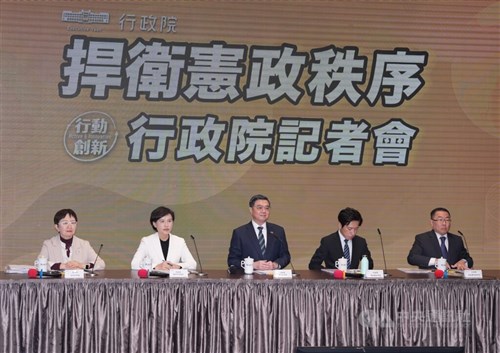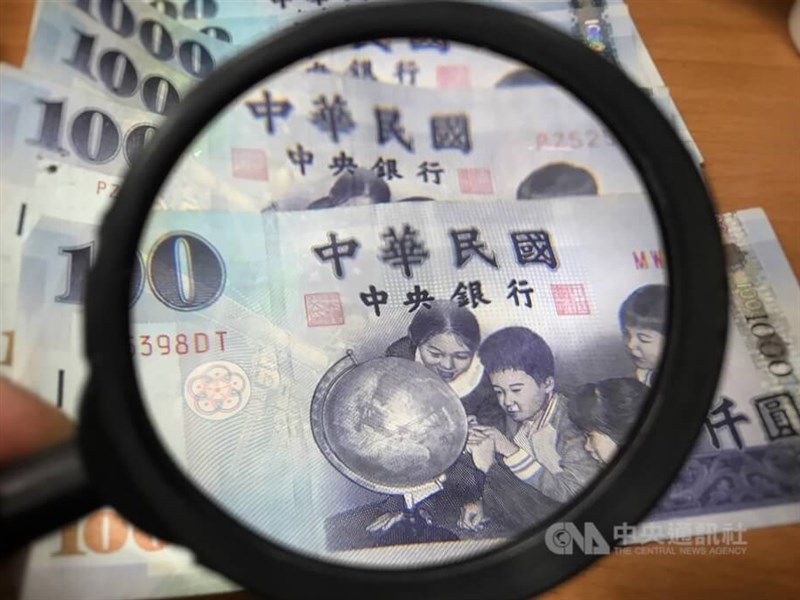EXPLAINER / Key takeaways from Constitutional Court ruling on legislative oversight amendments
10/28/2024 11:33 AM
The Constitutional Court on Friday ruled most of the amendments passed by the Legislature related to legislative oversight of the executive branch of government earlier this year "unconstitutional" and took note of "flaws" in the process by which the revisions were adopted.
(Full text of the story is now in CNA English news archive. To view the full story, you will need to be a subscribed member of the CNA archive. To subscribe, please read here.)
More in EXPLAINER
-
![5 things to know about the Taiwan-U.S. trade deal]() 5 things to know about the Taiwan-U.S. trade dealTen months after U.S. President Donald Trump sent a seismic wave across the globe with a new tariff policy in April 2025, Taiwan and the United States on Thursday signed an Agreement on Reciprocal Trade (ART) in Washington.02/14/2026 01:17 PM
5 things to know about the Taiwan-U.S. trade dealTen months after U.S. President Donald Trump sent a seismic wave across the globe with a new tariff policy in April 2025, Taiwan and the United States on Thursday signed an Agreement on Reciprocal Trade (ART) in Washington.02/14/2026 01:17 PM -
![The Cabinet's refusal to sign revised revenue-sharing law]() The Cabinet's refusal to sign revised revenue-sharing lawPremier Cho Jung-tai (卓榮泰) on Monday said that he will refuse to countersign amendments to a revenue-sharing law passed by the opposition-controlled Legislature -- an unprecedented action no Republic of China (Taiwan) government has previously taken.12/16/2025 08:57 AM
The Cabinet's refusal to sign revised revenue-sharing lawPremier Cho Jung-tai (卓榮泰) on Monday said that he will refuse to countersign amendments to a revenue-sharing law passed by the opposition-controlled Legislature -- an unprecedented action no Republic of China (Taiwan) government has previously taken.12/16/2025 08:57 AM -
![Everything you need to know about how to get NT$10,000 cash handout]() Everything you need to know about how to get NT$10,000 cash handoutThe Executive Yuan announced Thursday that registration for a one-time universal NT$10,000 (US$321) cash handout to help people in Taiwan survive Trump-era tariffs and inflation will start on Nov. 5, with payouts available as early as Nov. 12.10/24/2025 02:27 PM
Everything you need to know about how to get NT$10,000 cash handoutThe Executive Yuan announced Thursday that registration for a one-time universal NT$10,000 (US$321) cash handout to help people in Taiwan survive Trump-era tariffs and inflation will start on Nov. 5, with payouts available as early as Nov. 12.10/24/2025 02:27 PM
Latest
-
Society
Boy dies after pedal boat capsizes at Liyu Lake in Hualien
02/19/2026 08:08 PM -
Society
Penghu magistrate's condition improving after surgery: Hospital
02/19/2026 06:09 PM -
Society
Taipei warns residents as landfill fire smoke drifts across districts
02/19/2026 02:48 PM -
Society
Taiwan headline news
02/19/2026 02:28 PM -
Politics
Ex-recruits look back as alternative diplomatic service phased out
02/19/2026 12:27 PM


